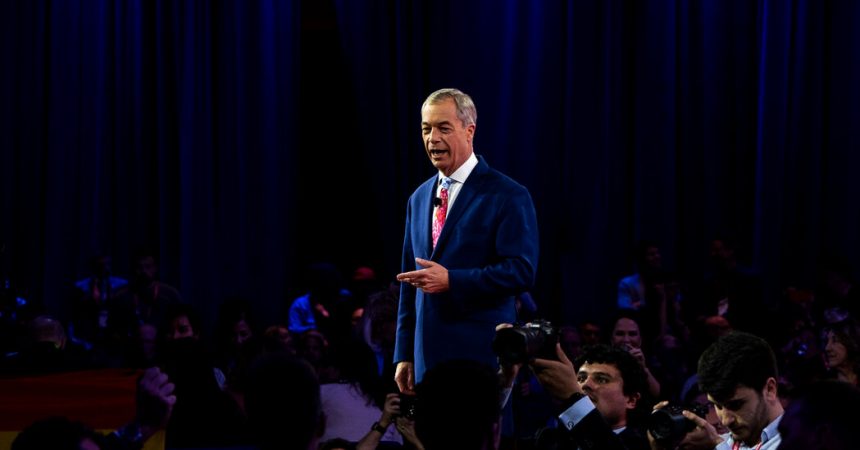Nigel Farage, the broadcaster and populist politician who championed Brexit, said on Thursday that he would not run for a seat in the British Parliament in a general election on July 4, preferring to focus on helping former President Donald J. Trump recapture the White House in November.
Mr. Farage’s announcement is likely to be a modest relief for Prime Minister Rishi Sunak and his Conservative Party, since Mr. Farage’s current party, Reform UK, is viewed as a significant threat to the Conservatives from the right. But Mr. Farage said he would “do my bit” to help Reform, which plans to field a slate of candidates in the election, running on an anti-immigration message.
“Important though the general election is,” Mr. Farage posted on social media, “the contest in the United States of America on Nov. 5 has huge global significance. A strong America as a close ally is vital for our peace and security. I intend to help with the grass-roots campaign in the USA in any way that I can.”
Mr. Farage, 60, who hosts a program on a British right-wing TV channel, GB News, campaigned for Mr. Trump in 2020 and interviewed him in March at his Palm Beach estate, Mar-a-Lago. Mr. Trump once suggested that the British government appoint Mr. Farage as ambassador to Washington.
But Mr. Farage’s electoral record is checkered: He ran for Parliament seven times but never won a seat, though he was elected to the European Parliament. He has stayed in the limelight in other ways, including an attention-grabbing claim that his exclusive private bank, Coutts, dropped him as a customer because of his polarizing politics.
Mr. Farage’s decision not to run was not a major surprise, given his lucrative broadcasting career. Reform’s leader, Richard Tice, tried to put a good face on the announcement, insisting that Mr. Farage would be on the campaign trail and that the party planned to field candidates in 630 seats across England and Scotland.
Mr. Tice said he would run for a seat in Boston and Skegness, a constituency a little more than 100 miles north of London that voted heavily in favor of Brexit in 2016.
Mr. Sunak called the snap election on Wednesday, several months earlier than expected, to capitalize on a few glimmers of good economic news for Britain. But Reform’s emphasis on immigration could lay bare vulnerabilities for the Conservative government, which has failed to fulfill Mr. Sunak’s promise to stop the flow of asylum seekers crossing the English Channel in small boats.







